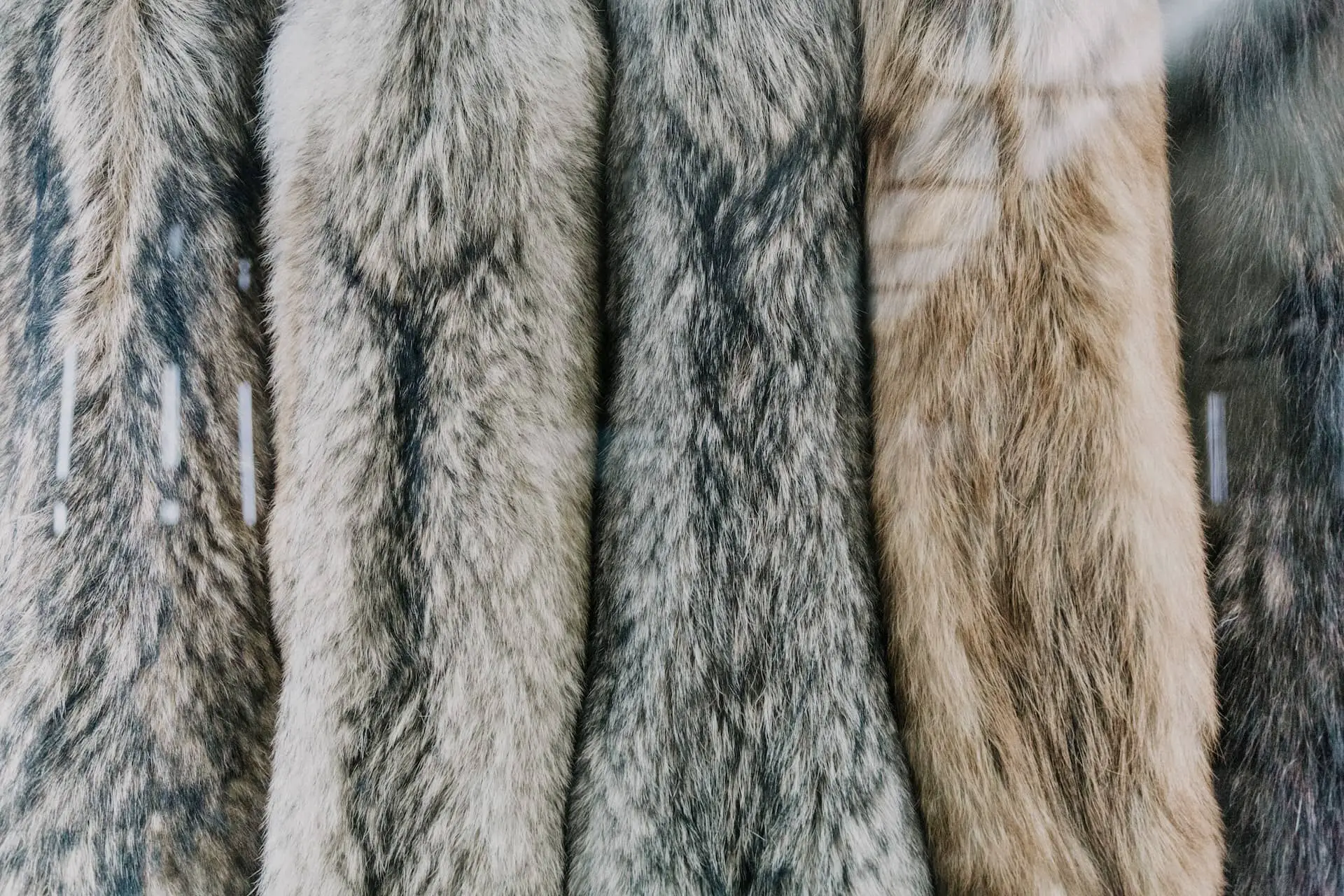News OnTheWight always welcomes a Letter to the Editor to share with our readers – unsurprisingly they don’t always reflect the views of this publication. If you have something you’d like to share, get in touch and of course, your considered comments are welcome below.
This from Maggie Nelmes, Ventnor. Ed
Twenty-three years ago, fur farming was banned in the UK. The Government did not, however, ban imports, nor did it ban the sale of fur. And so, the cruel trade has continued and the UK is complicit.
This trade damages the environment and our native wildlife, as The Humane Society International explains:
“In addition to animal cruelty, fur farming is damaging to the environment due, for example, to the use of toxic chemicals to dress, dye and preserve fur. Fur farms also pose a risk to European biodiversity. American mink is an invasive alien species that has been implicated in the decline of native species, such as the European mink and water vole, and has had a significant impact on breeding success of native birds and on domestic fowl.”
Mink have devastated many native wetland species
Many thousands of American mink were released into the wild in the nineteen-forties, when the fur trade was disrupted by the Second World War. These mink have since devastated many native wetland species.
In the nineteen eighties, Medina Borough Council granted planning permission for a mink farm at Porchfield, close to the Newtown Estuary. One of very few natural inlets in the South of England that are untouched by human development, with a variety of natural habitats, Newtown is a haven for a great diversity of wildlife.
This mink farm created a high risk of American mink escaping into the wild and devastating wildlife in the estuary. It was closed down when the nationwide ban came into force in 2000.
Intensive farming can spread disease that infects humans
The Covid pandemic demonstrated how intensive farming can spread disease that infects humans. In a typical fur farm, thousands of animals are allegedly kept in uncleaned cages, with wire floors to let the excrement fall through. Viruses thrive in overcrowded and filthy conditions and can jump the species barrier, infecting farm workers and starting an epidemic in the local community, possibly leading to a pandemic. The Humane Society International reports that:
“Since April 2020 there have been hundreds of outbreaks of COVID-19 on mink fur farms across Europe, and in October 2022 a fur farm in Spain with 52,000 mink reported an outbreak of avian flu that had likely spread between the animals.”
The Retained EU Law Bill 2022
The European Union outlawed the trade in cat, dog and seal fur before Brexit, but now the UK government’s Retained EU Law Bill 2022 threatens to remove this legislation from the UK’s statute books, as the cut-off date for ministers to decide which of many thousands of EU laws to retain, and which to amend or discard, is only nine months away.
It is an impossible task, and risks discarding important animal welfare legislation like this, due to lack of time, which will set us back decades. See the Law Society’s comments about the Retained EU Law Bill on the Law Society Website.
Retain bans on imports of cat, dog and seal furs
Animal welfare campaign organisations Four Paws UK and The Humane Society International UK are calling on the Government to commit to keeping bans on imports of cat, dog and seal furs and urging them to ban the import and sale of fur of ALL species.
Please sign the Petition. 100,000 signatures will trigger a debate in Parliament. Please help us to reach that goal.
UK imports fur from millions of animals annually
It is estimated that the UK imports fur from millions of animals annually, yet a 2022 poll shows that 77 per cent of Britons believe Government should ban fur imports.
An official EU-wide petition, the Fur Free Europe European Citizens’ Initiative, closed early after far exceeding the number of signatures needed for the European Commission to respond. More than 1.7 million EU citizens signed the petition calling for an EU-wide ban on cruel fur farming and trade.
Nineteen European countries banned fur farming
Nineteen countries across Europe, have banned fur farming, but it is still practiced in Finland, Poland, Greece, Lithuania, Spain, Romania, Sweden, Denmark and Bulgaria.
The industry has, however, seen a sharp fall in the numbers of animals killed for their fur since 2014, from 43.6 million animals to 30.7 million by 2019 and 12 million in 2021. More than 1,500 retailers, including Gucci, Adidas, H&M and Zara, have committed to a fur-free future and have joined the Fur Free Retailer scheme.
A cruel trade
Fur farming is a cruel trade. Intelligent wild mammal species, like beautiful Arctic foxes, chinchilla, American mink and racoon dogs, are deprived of their natural lives, abused and exploited. And they are brutally killed.
No account is taken of their sentience: their capability to feel pain and to suffer from mental illness. Animal sentience is now recognised in this country by law.
Farmed animals experience horrific cruelty and extreme stress
This is how a recent report – CertifiedCruel_FFA Research Report – on fur farming and trapping in the wild describes it:
“95 per cent of fur comes from animals that have suffered their entire lives in factory farms where they experience horrific cruelty and extreme stress, fear and suffering throughout their short lives.
- Small, dirty, and barren cages make it impossible for animals to move freely and to express their normal behaviour.
- Deformities are common and wounds are left untreated and quickly become infected.
- Out of stress and frustration, animals display abnormal behaviours such as fur chewing and self-injury.
- Handling methods include beating, strangling, and dragging animals.
- Cruel slaughter methods include gassing, electrocution, breaking the neck and in the worst case skinning animals alive.
- Selective breeding of ‘monster foxes’ for pathological obesity to maximise the size of their pelt.
“For those animals trapped in the wild, the horrific use of steel-jaw leghold traps, body-gripping traps, underwater traps, and wire neck snares inflict extreme pain and suffering to animals. Animals may suffer for days, or die through blood loss, thirst, starvation, or predation before the hunter returns to check on the trap.”
Please sign the petition and share it with your family and friends.
Image: marjan-blan-marjanblan under CC BY 2.0





